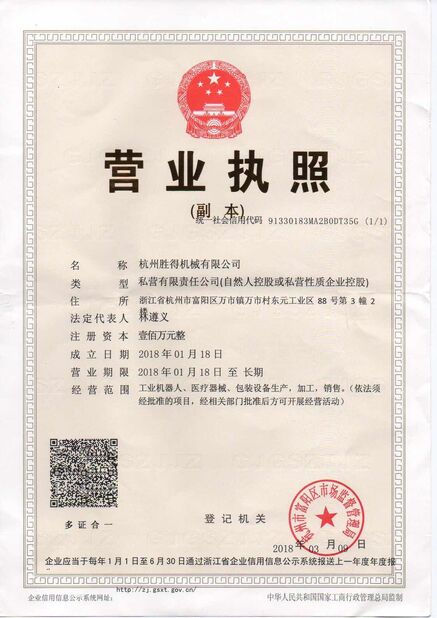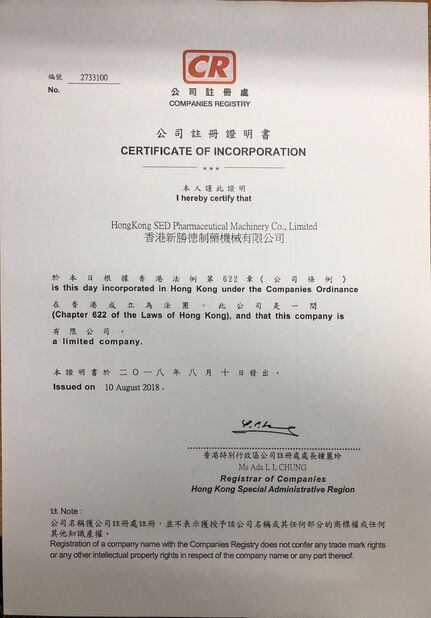In the modern era of manufacturing and packaging, the demand for efficient, precise, and versatile packaging solutions has never been higher. Among the various packaging technologies available, particle vertical packaging machines have emerged as a cornerstone in the pharmaceutical, food, and chemical industries. These machines are designed to handle the packaging of fine powders, granules, and other particulate materials with high accuracy and reliability. This article will explore the features, applications, and advantages of particle vertical packaging machines, with a focus on their role in the pharmaceutical industry.
What is a Particle Vertical Packaging Machine?
A particle vertical packaging machine is a specialized type of vertical packaging machine that is specifically designed to handle the packaging of particulate materials such as powders, granules, and tablets. Unlike traditional packaging machines, which may be limited in their ability to handle fine or irregularly shaped materials, particle vertical packaging machines are engineered to ensure precise and consistent packaging of these materials. These machines are widely used in the pharmaceutical industry due to their ability to maintain high standards of hygiene and precision, which are essential for the production of safe and effective medications.
Particle vertical packaging machines typically consist of several key components, including a powder feeding system, a sealing mechanism, and a control panel. The powder feeding system is responsible for accurately measuring and dispensing the particulate material into the packaging bags or pouches. The sealing mechanism ensures that the packaging is sealed properly, preventing contamination and ensuring the integrity of the product. The control panel allows operators to monitor and adjust the machine's performance, ensuring that it operates at optimal levels.
Key Features of Particle Vertical Packaging Machines
1. High Precision and Accuracy
One of the most significant advantages of particle vertical packaging machines is their high precision and accuracy. These machines are equipped with advanced electronic weighing systems and servo control systems, which allow for precise measurement and dispensing of particulate materials. This ensures that each package contains the correct amount of product, reducing the risk of underfilling or overfilling. In the pharmaceutical industry, where dosage accuracy is critical, this feature is particularly important.
2. Versatility and Flexibility
Particle vertical packaging machines are known for their versatility and flexibility. They can be used to package a wide range of particulate materials, including powders, granules, and tablets. This makes them suitable for a variety of industries, including pharmaceuticals, food, and chemicals. Additionally, these machines can be customized to meet specific packaging requirements, such as different bag sizes, seal types, and printing options.
3. High Productivity and Efficiency
Particle vertical packaging machines are designed to operate at high speeds, ensuring that they can handle large volumes of packaging tasks efficiently. This is particularly important in the pharmaceutical industry, where the demand for medications is constantly increasing. These machines can produce up to 20 to 100 bags per minute, depending on the model and the type of material being packaged. This high productivity ensures that manufacturers can meet the growing demand for their products without compromising on quality.
4. Ease of Operation and Maintenance
Particle vertical packaging machines are designed to be easy to operate and maintain. They are equipped with user-friendly control panels and intuitive interfaces, allowing operators to monitor and adjust the machine's performance with minimal effort. Additionally, these machines are built with durable and reliable components, ensuring that they can operate smoothly for extended periods without requiring frequent maintenance.
5. Compliance with GMP Standards
In the pharmaceutical industry, compliance with GMP (Good Manufacturing Practice) standards is essential. Particle vertical packaging machines are designed to meet these standards, ensuring that the packaging process is clean, safe, and consistent. These machines are often made from stainless steel, which is resistant to corrosion and easy to clean, reducing the risk of contamination.
Applications of Particle Vertical Packaging Machines
1. Pharmaceutical Industry
The pharmaceutical industry is one of the primary users of particle vertical packaging machines. These machines are used to package a wide range of pharmaceutical products, including tablets, capsules, vitamins, and powders. The high precision and accuracy of these machines ensure that each package contains the correct dosage of medication, which is critical for patient safety. Additionally, the machines are designed to maintain a hygienic environment, reducing the risk of contamination and ensuring the quality of the final product.
2. Food Industry
Particle vertical packaging machines are also widely used in the food industry. They are used to package powdered food products, such as milk powder, coffee powder, and seasoning powders. These machines ensure that the packaging is done in a clean and controlled environment, reducing the risk of contamination and ensuring the quality of the final product. Additionally, the machines can be customized to meet the specific packaging requirements of different food products.
3. Chemical Industry
The chemical industry is another major user of particle vertical packaging machines. These machines are used to package chemical powders and granules, such as fertilizers, pesticides, and industrial chemicals. The high precision and accuracy of these machines ensure that each package contains the correct amount of product, reducing the risk of errors and ensuring the safety of the final product. Additionally, the machines are designed to handle hazardous materials, ensuring that the packaging process is safe and efficient.
4. Agricultural Industry
Particle vertical packaging machines are also used in the agricultural industry. They are used to package agricultural products, such as seeds, fertilizers, and pesticides. The high precision and accuracy of these machines ensure that each package contains the correct amount of product, reducing the risk of errors and ensuring the safety of the final product. Additionally, the machines are designed to handle irregularly shaped materials, making them suitable for a wide range of agricultural applications.
Advantages of Particle Vertical Packaging Machines
1. High Precision and Accuracy
As mentioned earlier, particle vertical packaging machines are known for their high precision and accuracy. These machines are equipped with advanced electronic weighing systems and servo control systems, which allow for precise measurement and dispensing of particulate materials. This ensures that each package contains the correct amount of product, reducing the risk of underfilling or overfilling.
2. Versatility and Flexibility
Particle vertical packaging machines are known for their versatility and flexibility. They can be used to package a wide range of particulate materials, including powders, granules, and tablets. This makes them suitable for a variety of industries, including pharmaceuticals, food, and chemicals. Additionally, these machines can be customized to meet specific packaging requirements, such as different bag sizes, seal types, and printing options.
3. High Productivity and Efficiency
Particle vertical packaging machines are designed to operate at high speeds, ensuring that they can handle large volumes of packaging tasks efficiently. This is particularly important in the pharmaceutical industry, where the demand for medications is constantly increasing. These machines can produce up to 20 to 100 bags per minute, depending on the model and the type of material being packaged. This high productivity ensures that manufacturers can meet the growing demand for their products without compromising on quality.
4. Ease of Operation and Maintenance
Particle vertical packaging machines are designed to be easy to operate and maintain. They are equipped with user-friendly control panels and intuitive interfaces, allowing operators to monitor and adjust the machine's performance with minimal effort. Additionally, these machines are built with durable and reliable components, ensuring that they can operate smoothly for extended periods without requiring frequent maintenance.
5. Compliance with GMP Standards
In the pharmaceutical industry, compliance with GMP (Good Manufacturing Practice) standards is essential. Particle vertical packaging machines are designed to meet these standards, ensuring that the packaging process is clean, safe, and consistent. These machines are often made from stainless steel, which is resistant to corrosion and easy to clean, reducing the risk of contamination.
Future Trends in Particle Vertical Packaging Machines
1. Integration of AI and IoT
The integration of AI (Artificial Intelligence) and IoT (Internet of Things) technologies is expected to play a significant role in the future of particle vertical packaging machines. These technologies will enable machines to operate more efficiently and intelligently, reducing the need for manual intervention and improving overall productivity. Additionally, AI and IoT will allow for real-time monitoring and data analysis, enabling manufacturers to optimize their packaging processes and reduce waste.
2. Higher Filling Speed and Wider Material Compatibility
Future particle vertical packaging machines are expected to have higher filling speeds and wider material compatibility. This will allow them to handle a broader range of particulate materials and meet the increasing demand for faster and more efficient packaging solutions. Additionally, these machines will be designed to handle hazardous materials, ensuring that the packaging process is safe and efficient.
3. Green and Sustainable Development
With the increasing awareness of environmental issues, future particle vertical packaging machines will be designed to be more green and sustainable. This will involve the use of energy-efficient components and eco-friendly materials, reducing the environmental impact of the packaging process. Additionally, these machines will be designed to minimize waste and reduce the carbon footprint of the packaging industry.
4. Intelligent and Modular Design
Future particle vertical packaging machines will be designed to be more intelligent and modular. This will allow for greater flexibility and adaptability, enabling manufacturers to customize the machines to meet their specific needs.

 Your message must be between 20-3,000 characters!
Your message must be between 20-3,000 characters! Please check your E-mail!
Please check your E-mail!  Your message must be between 20-3,000 characters!
Your message must be between 20-3,000 characters! Please check your E-mail!
Please check your E-mail! 

